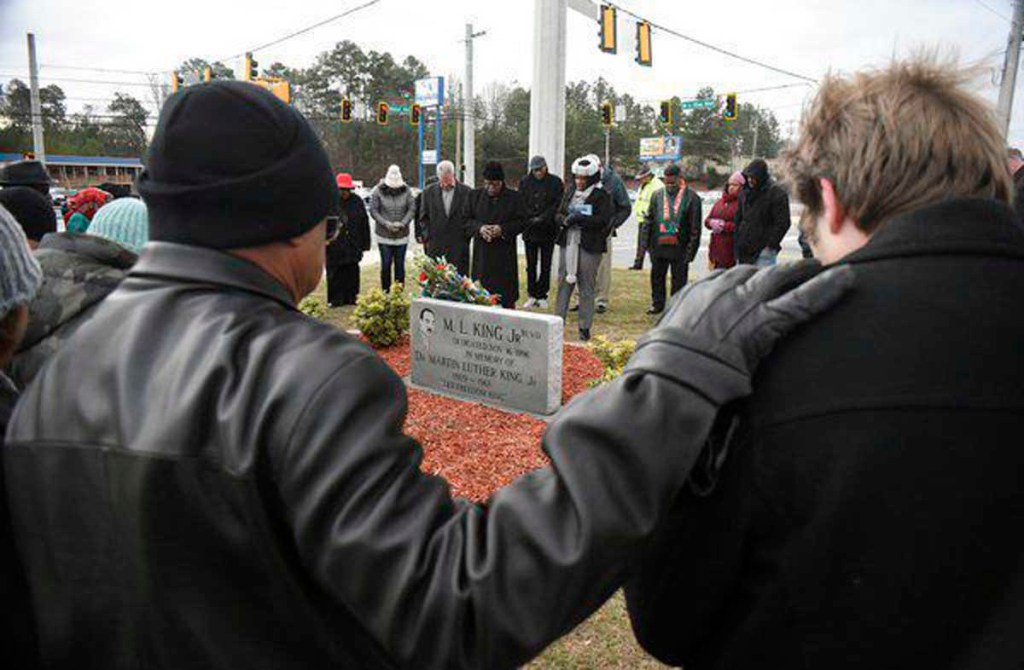Unity a focus at the Martin Luther King Jr. Day ceremony in Dalton
Published 8:00 am Wednesday, January 22, 2020

- Matt Hamilton/Daily Citizen-NewsThe group gathered around Martin Luther King Jr.'s memorial in Dalton says a prayer Monday morning.
DALTON, Ga. — Snow flurries and temperatures in the 20s didn’t stop a dedicated group from honoring Martin Luther King Jr. on the holiday that bears his name on Monday, as they marched to the memorial to him in Dalton singing “We Shall Overcome” — an anthem of the civil rights movement — before a wreath was placed next to the stone monument.
“Even though it’s cold, we’re excited to be here,” said Pat Gross, pastor of Grace Fellowship Ministries. “Sometimes we have to give of ourselves to be a blessing for others.”
“We have to stand together,” Gross added. “If you don’t do it, then who is going to do it?”
Indeed, the Martin Luther King Jr. Day ceremony at the intersection of Martin Luther King Jr. Boulevard and East Walnut Avenue was about “unity,” said True Gospel Pentecostal Church Bishop Reuben Graham. “I want people to keep that unity going, not just on this day, but all the time.”
Gross noted that, on Monday, “black preachers and white preachers are walking together, and we love and support one another.”
“Walking together, serving together and moving forward together is our theme today,” Gross said. “We’ve let color be a barrier far too long, and there’s so much divisiveness already, (so let’s make) 2020 a time of coming together.”
“We can talk this thing as long as we want, but we have to put some action behind it,” she added. “Regardless of race, color or creed, we need to walk, talk and work together.”
King’s lessons remain “relevant” today, even a half-century after his assassination, said Rick Willis, chairman of the Martin Luther King Jr. Day Celebration Committee. “We’ve all come out here, and we’re all together.”
The holiday commemorates the “life, legacy and leadership” of King, who “wanted better for all of us, not just blacks,” Gross said. “He wasn’t about himself, but others.”
If not for King and his push for equality, “there are a lot of things I wouldn’t be able to do,” including his métier of senior support engineer in information technology, Willis said. King “freed our minds so we could strive to do more than our parents, and so our kids have (even) better opportunities.”
King was also instrumental in building support for the Voting Rights Act of 1965, a landmark piece of federal legislation that prohibits racial discrimination in voting, but “you don’t have a voice if you don’t vote,” Gross said. “That is your voice.”
It was King’s dream that all could one day proclaim “Free at last, free at last, thank God almighty we are free at last,” and “we should all have a dream this morning,” Gross added. “We want change, and I’m looking for change.”
King “stood for equality, and he was nonviolent, (so) we ought to show love,” as he did, she concluded. “Let us start now.”





